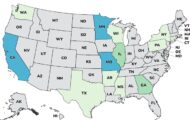The FDA has released their report on testing ready to eat dips and spreads for possible Salmonella and Listeria monocytogenes contamination. This sampling assignment started in March 2021 and was completed in January 2022.

Refrigerated dips and spreads include hummus, tahini, pimento cheese, and yogurt-based products. There have been multiple recalls for tahini and hummus for bacterial contamination in the past few years. From 2017 through 2022, for instance, there were five recalls of hummus and six recalls of multi-commodity dips that were contaminated with Salmonella or Listeria.
In 2019, a Salmonella Concord outbreak linked to tahini sickened at least six people in three states, and also in 2019, a Salmonella outbreak at Moby Dick House of Kabob in Maryland was potentially associated with the consumption of hummus.
Ready to eat foods like these can become contaminated in the food manufacturing environment, or if they are made with contaminated ingredients. These products also have favorable water activity levels and pH for bacterial growth. Consumers eat these products without a “kill step,” such as cooking, that can reduce or eliminate any pathogens that may be present.
The FDA collected 747 samples of refrigerated, multi-commodity ready to eat dips and spreads that contain ingredients such as sesame, cheese, vegetables, and seafood. Salmonella was found in one sample of hummus, and Listeria monocytogenes was found in three dip and cheese spreads. The FDA worked with the manufacturers to remove these contaminated products from the marketplace.
Common factors or patterns related to contamination are being reviewed. This data will hopefully help the agency develop guidance and update priorities. This sampling will continue as warranted to protect consumers.




